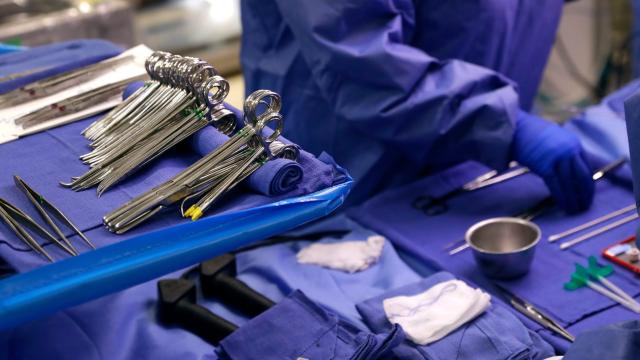Nearly 1,200 patients at Goshen Hospital in northern Indiana may have been exposed to hepatitis B, hepatitis C, and HIV because a technician missed an important step during the routine cleaning of surgical instruments.
CNN reports patients who underwent surgery at Goshen, Indiana’s hospital from April 1 to September 30 of this year—a period of 182 days—may have been exposed to dangerous diseases due to a breakdown in the hospital’s cleaning practices. In total, 1,182 patients may have been affected, all of whom have since been contacted by the hospital.
A letter sent to the patients by Goshen Health officials apologised for the “worry and inconvenience” caused by the incident, while asking the patients to come in and get tested. The cause for alarm stems from technician failing to complete a required step sterilising medical instruments used during surgery, according to a press release issued by Goshen Health. Here’s how Goshen Health described the sterilisation breakdown in its press release:
[One] step in a multistep cleaning process was not completed with certain surgical instruments in a limited number of cases. The surgical instruments in question were still treated with other usual chemical disinfection and machine sterilisation processes which include a wide margin of safety; however, we are not able to determine if such instruments were completely sterile prior to use. This action has the potential of exposing a limited number of patients to the hepatitis C virus, hepatitis B virus and human immunodeficiency virus (HIV).
Both hepatitis B and hepatitis C are liver infections caused by blood-borne viruses. Hepatitis B can spread through sexual contact and the sharing of needles or other drug-injecting tools. Hepatitis C can also be contracted through the sharing of needles or other drug-injecting equipment as well.
The HIV virus, which weakens the body’s immune system, can be transmitted through certain bodily fluids and also the sharing of needles. HIV can live in a used needle for up to 42 days in certain situations, according to the U.S. Centres for Disease Control and Prevention.
In its press release, Goshen Health said the risk of patients contracting a disease due to this cleaning mishap is “extremely low,” and it’s acting “out of an abundance of caution.” To that end, Goshen Health is offering to test its patients for free.
“As with any patient safety concern, we rigorously investigated all aspects around the incident,” Daniel Nafziger, Hospital Chief Medical Officer, said in the statement. “We have put strict policies and additional safety measures in place to ensure it does not happen again. We also want to express our concern for each of these patients.”
Goshen Health has set up a centralised testing centre, and also call centre for patients to ask questions and schedule tests.
Perhaps unsurprisingly, a class action lawsuit has now been filed against Goshen Health, citing “negligent infliction of emotional distress, negligence and medical malpractice,” reports NBC affiliate WTHR. The station’s report notes that the patient responsible for the lawsuit underwent surgery at the hospital this past June.
